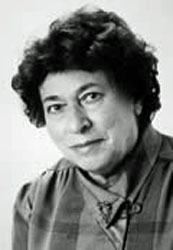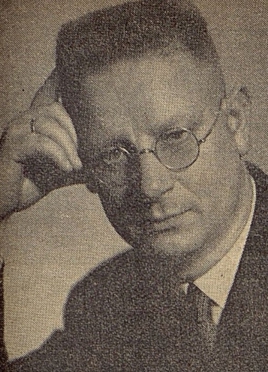Related Research Articles
Friedrich Salomon Krauss was a Croatian Austrian Jewish sexologist, ethnographer, folklorist, and Slavist.

The Encyclopedia of Fairy Tales is a German reference work on international Folkloristics, which runs to fifteen volumes and is acknowledged as the most comprehensive work in its field. It examines over two centuries of research into the folk narrative tradition. It was begun by Kurt Ranke in the 1960s and was continued by chief editor Rolf Wilhelm Brednich, both of the Göttingen Academy of Sciences.

Little Wildrose is a Romanian fairy tale. Andrew Lang included it in The Crimson Fairy Book.

Kurt Ranke was a German ethnologist who specialized in the study of fairy tales.
Keloğlan is a fictional character in Turkish culture.

Elfriede Gerstl was an Austrian author and Holocaust-survivor. Gerstl, who was Jewish, was born in Vienna, where her father worked as a dentist.
Rolf Wilhelm Brednich is a German Europeanist ethnologist and ethnographer (Volkskundler) and folklorist.
Edmund Veckenstedt (1840–1903) was an educator, ethnologist and folklorist who published many works, sometimes under the pseudonym Heinrich Veltheim.
Brigitte Bönisch-Brednich is a Professor of Anthropology at the Victoria University of Wellington, New Zealand, and Head of School of Social and Cultural Studies.

Friedrich Ranke was a German medievalist philologist and folklorist. His Old Norse textbook Altnordisches Elementarbuch remains a standard, and all literature concerning Gottfried von Strassburgs Tristan und Isold uses Ranke's line numbering for references to the text.

Karl Felix Wolff was a journalist, poet, author and self-taught folklorist of the South Tyrol who collected and published Ladinian legends.

Ingeborg Weber-Kellermann was a German folklorist, anthropologist and ethnologist. She was an academic teacher, from 1946 at the German Academy of Sciences at Berlin in East Berlin and from 1961 at the University of Marburg.
Karin Flaake is a German sociologist and professor (retired) at the Carl von Ossietzky University Oldenburg. Her publications on the adolescence of young women and men are part of the literature of socio-psychologically oriented gender research. Another focus of her work is on the chances of changing gender relations in families.
Marie Andree-Eysn was an Austrian botanist and folklorist. She was a mentor to folklorist and politician Rudolf Kriss.
Hans-Jörg Uther is a German literary scholar and folklorist.
Renate Brockpähler was a German folklorist.

Georg Hüsing was an Austrian historian and philologist who specialized in Germanic studies and mythography.

Edmund Mudrak was an Austrian philologist who specialized in Germanic studies.
In folkloristics, "The Animal as Bridegroom" refers to a group of folk and fairy tales about a human woman marrying or being betrothed to an animal. The animal is revealed to be a human prince in disguise or under a curse. Most of these tales are grouped in the international system of Aarne-Thompson-Uther Index under type ATU 425, "The Search for the Lost Husband". Some subtypes exist in the international classification as independent stories, but they sometimes don't adhere to a fixed typing.

Hermann Bausinger was a German cultural scientist. He was professor and head of the Ludwig Uhland Institute for empirical cultural science at the University of Tübingen from 1960 to 1992. The institute has focused on the culture of everyday life, the history of traditions, and the research of narration patterns and dialects. His history of literature from Swabia from the 18th century to the present was published for his 90th birthday.
References
- Rolf Wilhelm Brednich, Zum 65. Geburtstag von Elfriede Moser-Rath, in: Fabula, 32 (1991), p. 1-3
- Rudolf Schenda in: Bayerisches Jahrbuch für Volkskunde 1991, p. 147-149.
- Ingrid Tomkowiak: Elfriede Moser-Rath (1926–1993). In: Fabula 35 (1994), p. 125-127
- Ingrid Tomkowiak: Moser-Rath, Elfriede. In: Enzyklopädie des Märchens Vol. 9.2. (1998), p. 939-943.
- Wolfgang Brückner: Martins von Cochem 'Außerlesenes History-Buch' und seine Vorbilder. Für Elfriede Moser-Rath in Fabula, 33(3-4) (1992), p. 193-205.